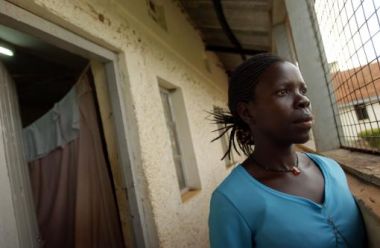World Vision joins UN pledge to end the use of child soldiers

World Vision has pledged its support for a UN campaign to put an end to the recruitment and use of children within government forces by 2016.
Around a quarter of a million children around the world are soldiers, and though many are recruited by rebel groups, thousands are part of official government forces.
The physical and psychological effects of this exploitation are terrible and long-lasting. Easy to manipulate and with a low sense of danger, children are often sent to the front line, and UK charity War Child estimates that 40 per cent of all child soldiers are girls who are regularly subjected to sexual abuse.
In response to these harrowing statistics, the UN launched its Children Not Soldiers campaign in New York on 6 March. Leila Zerrougui, Special Representative for Children and Armed Conflict, delivered a message from Secretary-General Ban Ki-moon, in which he stressed: "All children deserve protection, not exploitation. They belong in school, not armies and fighting groups. Children should be armed with pens and textbooks, not guns.
"The time has come for the world to unite and turn the page, once and for all, on the recruitment and use of children by security forces in conflict."
In June 2013, the UN made a commitment to eliminating the role of children in government security forces in the next three years, and is working with the Democratic Republic of Congo, Chad, South Sudan, Afghanistan, Myanmar and Somalia to extend protections to vulnerable young people. It is hoped that both Yemen and Sudan will also sign action plans with the UN.
World Vision is supporting this commitment and believes that it is possible to eliminate the practice entirely, though it will require investigation into the root causes of child recruitment in addition to the wholehearted engagement and cooperation of the countries concerned, which is often made more difficult by political instability.
"Governments must ensure their military practices explicitly prohibit the recruitment and use of children," says Senior Child Rights Adviser Erica Hall.
"They must also do everything they can to ensure children are safe and cared for within their own communities, so that joining the military or an armed group is not seen as a better option to their current situation."
World Vision is just one organisation working towards the protection and support of victims, as well as the prevention of further recruitment. Christian Aid is also passionate about the cause, and is currently sponsoring "In Kony's Shadow", a multimedia exhibition at gallery@oxo on Southbank in London which explores the effects of child abduction in Uganda.
For more details on the Children Not Soldiers campaign, go to http://childrenandarmedconflict.un.org/children-not-soldiers/











